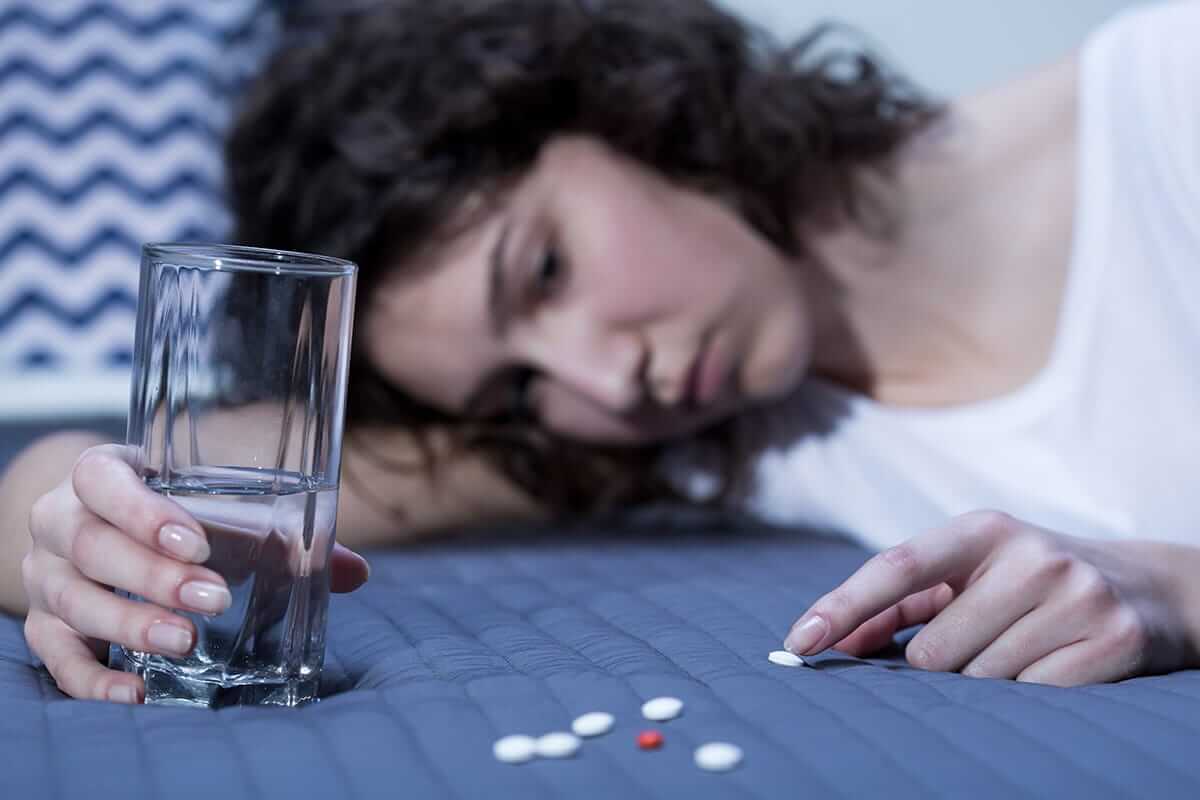Research and studies have been conducted for quite some time now, trying to understand the adverse effects of alcohol on diabetes and can quitting alcohol reverse diabetes. Even pausing alcohol consumption for a while is known to have significant effects on the body, and is known to improve the health of the person, both mentally and physically. Along with that we believe, one should try some Ayurvedic medicine to treat diabetes in this article, we will try to understand the sugar levels in alcohol, its effect on the body, and can quitting alcohol reverse diabetes.
Understanding alcohol and its different types
When seen from a scientific point of view, alcohol in literal terms refers to when a hydroxy group, which refers to a combined pair of oxygen and hydrogen atoms that takes the place of the hydrogen atom in a hydrocarbon. Secondary alcohols are created when the alcohol combines with other atoms to form methanol, ethanol, and isopropanol. The one which we consume is ethanol, and it is formed by a fermentation process, of yeast, sugar, and various starches. Hence, by default, there is a sugar present in alcohol.
Based on the alcohol content present, different drinks produce different levels of drunkenness in the body. A few types include-
· Beer
· Wine
· Vodka
· Hard Cider
· Gin
· Brandy
· Whiskey
· Rum
What is the Glycaemic Index of Alcohol?
The basic definition of Glycaemic Index or GI is that it’s a method to rank carbohydrate-containing food and how quickly or slowly they get digested and cause an increase in the blood sugar or glucose levels in the body, over a period of time.
Consuming alcohol can actually have quite a confusing effect on the blood sugar levels of the body as it usually prevents the liver from producing glucose. This can lead to a case of hypoglycemia, otherwise known as a sudden drop in blood sugar levels in the body. Alcohol, in fact, has different effects on blood sugar, and it varies from person to person.
If you are a diabetic, it is often advised to get your blood sugar levels checked before and after consuming alcohol, to understand its effects on your body. This is where the popular question arises, if and whether alcohol converts to glucose or what happens exactly to the alcohol when it is consumed by us? Alcohol when consumed in small amounts can actually cause a spike in blood sugar levels, but at other times, when consumed in large quantities, may even cause a drastic drop in blood sugar levels, which ends up being extremely harmful for Type 1 diabetes patients.
Some alcoholic drinks contain more sugar or rather, carbohydrates than others by default, for example, beer and sweet wine. This may cause a definite raise in blood sugar levels.
Beers and lagers typically tend to have a carbohydrate content of around 15 to 20 grams per single pint. Wines and champagne varieties have varying amounts of carbohydrates, depending on how dry or how sweet it is. For example, a dry wine variety can contain only 1 to 2 grams of carbs but a sweeter variety can contain up to 20 grams of carbs.
Can Alcohol cause Diabetes?
Though alcohol’s general effect on the body, upon consumption, can cause a drastic drop in blood sugar levels, on the other hand, excess drinking of alcohol can also be a factor in causing diabetes. The following are the reasons why consuming excess alcohol can lead to diabetes:
· Heavy drinking more often than not leads to a decrease in the body’s sensitivity to insulin. This can be a major cause of problems for type 2 diabetic patients or may even cause type 2 diabetes.
· Excessive drinking of alcohol, over prolonged periods of time, can most often lead to chronic pancreatitis, which is most often also a side effect of diabetes.
· Most alcoholic drinks often contain a lot of calories in a single serving. Consumption of large amounts of alcohol can eventually lead to weight gain, which plays a great role in the development of type 2 diabetes.
Can diabetics consume alcohol?
Alcohol causes adverse and varying effects on the body, especially depending on the amount consumed. If you are a diabetic patient, consumption of alcohol tends to either cause your blood sugar levels to rise or fall. Alcohol’s effects on diabetes and diabetics are as follows:
· Having alcoholic beverages in moderate amounts can cause a direct spike in the blood sugar levels, but excessive consumption also leads to a drastic drop in sugar levels, which is extremely dangerous for patients with Type 1 diabetes.
· Alcoholic beverages usually contain a lot of calories, depending on the variety, and this can become a major factor in the development of Type 2 diabetes.
Hence, there are certain precautionary steps that can be kept in mind or followed while consuming alcohol, especially for diabetic patients. The precautionary steps to be taken are as follows:
· Try to completely avoid alcoholic beverages which are high in sugar content. Cocktails, for example, contain a lot of sugar as they are mixed with sugary syrups and even carbonated drinks.
· Do not guzzle down or gulp down the alcohol. Rather, drink the beverage slowly. This ensures that there is no sudden spike in insulin or blood sugar levels.
· Make sure to consume alcoholic beverages only when having food.
· Make sure to consume alcoholic beverages in moderation. Do not consume more than one to two servings on a single day.
· When consuming wine, opt for a dry variety, as they contain lesser amounts of carbohydrates.
· Use water, tonic water, diet sodas or zero-calorie sparkling water as your mixer.
How does alcohol cause a spike in blood sugar levels?
Alcoholic beverages which often have a lot of calories, like beer, sweeter varieties of wine, or even cocktails, when consumed, can cause a spike in the blood sugar levels as constant and excessive consumption of food or beverage which is high in calories can lead to excessive weight gain. Weight gain is a huge factor of diabetes.
Alcohol is also known as an appetite stimulator. This leads you to eat an excess amount while consuming alcohol and even after consumption. This once again leads to weight gain, which in turn is a cause of diabetes, especially type 2 diabetes.
Risks and Effects of Alcohol on the body
· Excessive drinking can cause pancreatitis and lead to pancreatic inflammation, which in turn cause long-term complications. Excessive alcohol consumption can alter the activity of enzymes made by the pancreas, which can promote inflammation in the organ.
· Consumption of alcohol on a long-term basis becomes an obstacle to the process of removing harmful toxins from your body. It also increases your risk for liver damage. Alcohol suppresses your immune system and causes chronic inflammation, which can lead to cirrhosis.
· Many diabetics and hypoglycaemics need to avoid excessive amounts of alcohol because it can affect your blood sugar levels. If the blood sugar levels change drastically; there is a chance of experiencing more complications and ill effects pointing to diabetes.
· Alcohol damages the brain and reduces a person’s ability to create prolonged memories and think clearly. If you’re sober, then your brain is able to create long-term memories. Consuming alcohol can have several effects, including inhibiting the ability to create memories, and reducing your capacity for reasoning.
· Some people who drink heavily may develop a physical and emotional dependency on alcohol. Alcohol withdrawal can be difficult and life-threatening.If you’re seeking professional help, medical detoxification is often the best way to ensure you break the physical addiction to alcohol.
· Heavy drinkers may develop ulcers (due to dehydration and constipation) and hemorrhoids (which can lead to harmful internal bleeding). It could also potentially lead to cancer.
· Those who have been chronic drinkers of alcohol are more at risk of heart-related issues than those who do not consume. It is not recommended to drink alcohol on a daily basis. Alcohol can negatively affect many important bodily organs like the heart and lungs.
· Drinking too much can cause several serious, long-lasting health problems, including a drastic effect on men’s libido and even erectile dysfunction. Excessive drinking in women can cause a serious effect on their menstrual health.
· In the long term, drinking too much might prevent your body from maintaining stronger bones. This habit might cause thinner bones and increase the risk of bone fractures in case you fall.
· Those who drink heavily over a prolonged period of time are much more likely to get pneumonia or tuberculosis than the general crowd. Drinking alcohol increases your risk of developing different types of cancer-causing a major effect on the body’s immune system.
How many people die due to alcohol every year?
Worldwide, alcohol use causes over 3 million deaths every year and represents 5.3% of all deaths. Alcohol-related deaths are the fifth leading risk factor for global disease. Alcohol use is a major risk factor for disease and injury.
Can you drink alcohol if you are diabetic?
Studies show that moderate drinking can have positive health effects on people with Type 2 Diabetes, but red wine is especially beneficial. If you have type 2 diabetes, to drink your beer or pinot without creating further health problems, and understand how drinking affects your body and system. For those with type 2 diabetes, random episodes of consuming alcohol over the short term may slightly increase insulin production in the body, and one drink with a meal can temporarily lower blood sugar for someone who has their diabetes under control.
For people with type 2 diabetes, the key to drinking safely is to choose alcoholic beverages that are low in sugar and carbs. If you choose alcoholic beverages that are low in sugar and carbs, and drink them straight up or with a sugar-free mixer, it is known to be better. For people with type 2 diabetes, the key to drinking soberly is to avoid wine and beer, which tend to be higher in calories.
When planning to drink alcohol, take steps to keep your blood sugar stable, such as, for each alcoholic beverage you drink, have a glass of water to increase your hydration. Stay well hydrated by drinking a glass of water or seltzer per alcoholic drink.
Can alcohol-induced diabetes be reversed?
Heavy alcohol consumption interferes with a person’s ability to think clearly and make rational decisions, which can make it difficult to monitor blood sugar levels, because alcohol impairs brain function, especially when a diabetic is also using an insulin pump. Can quitting alcohol reverse diabetes has been a huge question for ages? Quitting alcohol can reverse many problems in the body.
When diabetes and alcoholism occur together, it’s important to have a treatment program that addresses both.If you’re a diabetic who drinks, it will complicate and exacerbate the potential side effects of diabetes. When you have both alcoholism and diabetes, the treatment of each condition has to be tailored to the other.
During the detoxification process, medications may be used to treat some of the most common withdrawal symptoms, and it is important that alcohol withdrawal management requires medical attention. Individuals who go through alcohol detox programs may also have other health conditions.In an outpatient program; medications may be used to manage some symptoms. It is important that doctors know about all conditions to make it easier for the patient.
While there is no cure, both conditions can be managed with the help of highly trained professionals in a specialized co-occurring, experimental treatment program that has been developed for clients with comorbid conditions of alcoholism and diabetes. Quitting alcohol can reverse a lot of side effects in the body, but there is no permanent cure for alcohol-induced diabetes.
Treatment to cure Diabetes
While there is no permanent cure to diabetes, you can take several preventative measures and even cure it up to some extent. A few ways to do this include healthy eating, regular exercise, practicing portion control, regular blood sugar monitoring, weight loss, and even insulin therapy. Consume lower calories containing foods, practice good portion control, and even eat more foods that are high in fiber, like fruits and vegetables. You can even use healthier oils for cooking, such as extra virgin olive oil and canola oil.
Cardio exercise is one way to burn calories. Swimming, biking, running, and other activities can help build muscle. You should walk, swim, bike, or run for thirty minutes every day (or most days of the week).To lose weight, you should exercise at least 150 minutes a week as an adult. When you get your heart rate up and your body moving, it can help you feel better and meet your weight loss goals.
Losing weight improves blood sugar, cholesterol, triglycerides, and blood pressure. If you’re overweight, losing as little as 5% of your body weight will improve your health and disease management.
If diet and exercise aren’t enough to lower your blood sugar level, your doctor may prescribe diabetes medications that help lower insulin levels. Your doctor will determine how often you need to check your blood sugar level to ensure you are within the specific target range. Make sure you check your blood sugar level before and after meals and try to spread out your meals evenly throughout the day. Cutting alcohol can definitely reverse the effects of diabetes on the body.







You must be logged in to post a comment.